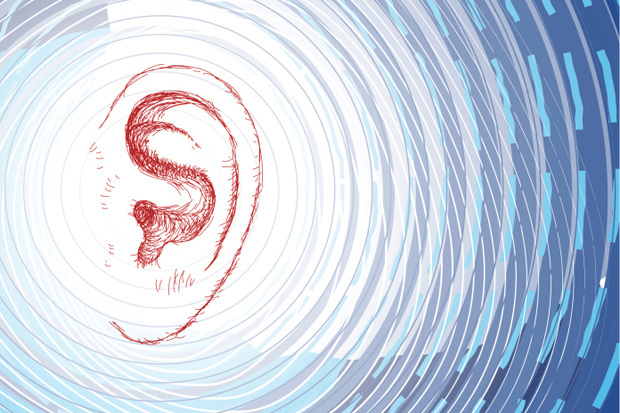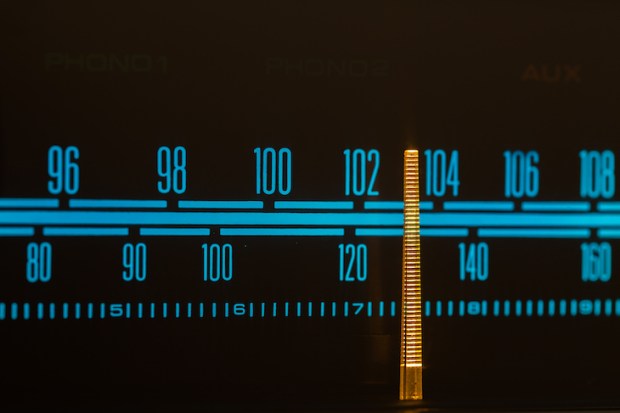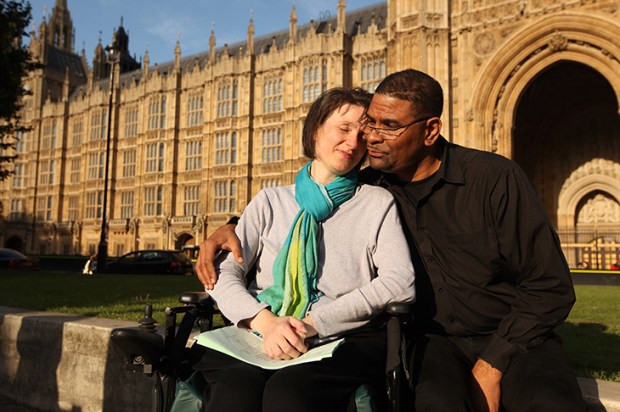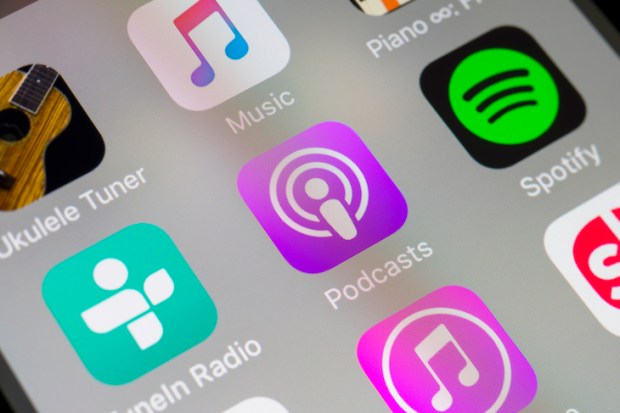Our hearing is the first of our senses to develop while we are in the womb. It’s the first connection we make to the life around us, and to other people. In a new series of The Listeners on Radio 4 (Tuesday) we heard from ‘professional’ listeners, whose lives depend on their highly developed use of this first and most crucial sense. We might hear, but do we always listen?
‘For me,’ says the barrister Helena Kennedy, ‘listening is the activity of hearing combined with the search for meaning, or the hidden meaning.’ When she cross-examines in court she has to work out on the spot whether someone is telling the truth. ‘To do that,’ says Kennedy, ‘you have to employ other senses.’ It’s about listening to what is beyond being said. ‘I can feel it,’ she says, ‘it’s visceral.’
The task of Carine Kennedy (no relation), who works as a conference interpreter and has translated for the Pope, the Queen and heads of state, might not seem comparable but in fact she also has to listen so intently that she can catch all the nuances, the subtext of what is being said. Perhaps surprisingly, she admitted, ‘I don’t render it in a neutral way. If I hear that someone’s angry, I will also express that anger.’ But she does need to convey clearly what is being said, which often is made more difficult because speakers at these big occasions tend to be nervous, and this makes them speak faster and faster. To keep up, Carine says, she has not only to absorb the sentence that’s being said but also at the same time to anticipate what the next sentence will be. Being one step ahead of the speaker is crucial, and this means understanding what lies behind the words she is actually hearing in that moment.
Carine and her colleagues only work for half an hour at a time (and if the subject is very dense and difficult this is cut down to only 15 minutes) to ensure their concentration doesn’t flag. As an advocate, too, Helena Kennedy can’t afford to miss a word, a pause, a nuance. She has ‘to return to that person [under cross-examination] the very words that they have spoken only a few moments before’. You’ve got to have listened hard enough to be able to do that, she says. It’s a skill you have to learn.
Listening is natural, explains Mark Milton, founding director of Education 4 Peace, but it’s not habitual. Real listening needs to be taught, and especially in this conflict-ridden world. He campaigns to have ‘active listening’ included in the school curriculum, not for learning but for understanding. When people are listened to, he argues, they naturally tend to listen to others. It’s all about being able to imagine ourselves in the shoes of others. Yet listening of this kind is not valued in governance today (you only have to listen to Today in Parliament to recognise the truth of this).
The need for this kind of listening is something with which Iby would agree. She told us in The Listening Project (Friday and Sunday, Radio 4) that at the age of 20 she was incarcerated in Auschwitz, watching a fellow Jew dying in front of her simply because she was diabetic and was denied the drugs to keep her alive. She herself lived in fear every minute of every day. To be noticed spelt danger and the prospect of being the next young woman to disappear. Iby, though, survived and after the war was over she went back to her native Czechoslovakia and married a British army officer, who brought her to live in England. But she never talked about the war or her experience, not for 40 years until a chance friendship with Caroline, whom she met while making tea at church, encouraged her to reveal her story.
Why did she never say anything, not even to her husband? ‘I didn’t find it was necessary to remember.’ She says now, astonishingly, ‘it was such a short period of time when this happened… My years in England are much more important than those three to four years…’ She also knew that ‘she couldn’t possibly talk to my children about it because it’s a burden on the second generation’.
Her son did realise that she was hiding something and felt that ‘in a negative way’. But for Iby it was a matter of survival. By not looking back she protected herself from the ghosts of all those corpses. Now, though, she has begun talking about it and visiting schools to instil in children the belief that all people are equal and should be judged on their own merit and not for who they are. She read a poem in which she insists, ‘Listen to me please… Remember two things please. Under the skin we are all the same. And each of you can make a difference. So don’t disappoint me.’
Got something to add? Join the discussion and comment below.
Get 10 issues for just $10
Subscribe to The Spectator Australia today for the next 10 magazine issues, plus full online access, for just $10.
You might disagree with half of it, but you’ll enjoy reading all of it. Try your first month for free, then just $2 a week for the remainder of your first year.




![British poet Salena Godden presenter of Mrs Death Misses Death on Radio 4. [Photo: Roberto Ricciuti / Getty Images]](https://www.spectator.com.au/wp-content/uploads/2018/12/Radio.jpg?w=620)









Comments
Don't miss out
Join the conversation with other Spectator Australia readers. Subscribe to leave a comment.
SUBSCRIBEAlready a subscriber? Log in